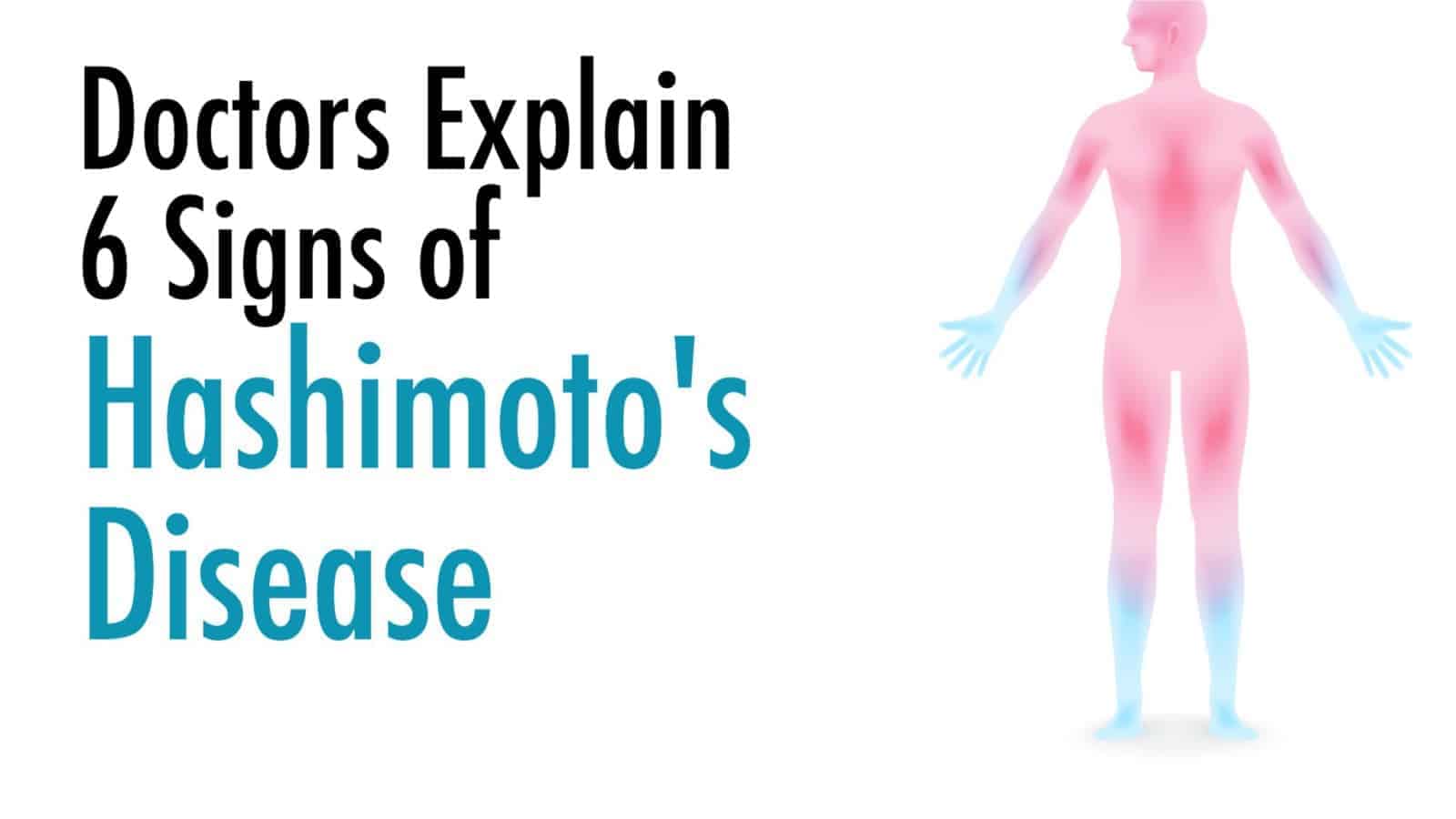What is ‘Hashimoto’s Disease’?
Hashimoto’s thyroiditis is named after the Japanese medical scientist, Hakaru Hashimoto, who discovered the condition in 1912. Hashimoto’s discovery took another 45 years to be labeled an autoimmune disorder. Sadly, the brilliant scientist had already passed.
The word “thyroiditis” refers to “inflammation of the thyroid gland,” for which numerous possible causes exist.
Hashimoto’s is the most common form of hypothyroidism in the United States. Estimates reveal that Hashimoto’s affects about 5 percent of the population at some point in life. Demographically, women between the ages of 30 to 50 make up the majority of patients.
Hashimoto’s disease is the most common cause of hypothyroidism in the United States. It primarily affects middle-aged women but can also occur in men, women of any age, and children. ~ Mayo Clinic
Women are seven times more likely to develop the disorder than men (really?!)
Hypothyroidism, also termed an underactive thyroid or low thyroid, is a disorder in which the thyroid gland doesn’t produce enough thyroid hormone. (As opposed to hyperthyroidism, wherein the thyroid produces the hormone in excess.)
What are the causes of Hashimoto’s?
Like other thyroid disorders, doctor’s aren’t quite sure what causes the immune system to attack the thyroid gland. Some scientists think that exposure to a bacterium or virus may activate a response, while other scientists attribute the cause to genetic factors.
In genetically susceptible individuals, environmental factors including selenium deficiency, high iodine intake, infection, and certain drugs may increase the risk of developing Hashimoto’s.
Individuals already diagnosed with an autoimmune condition also have a higher risk of developing Hashimoto’s. Autoimmune diseases most commonly associated with the disorder include alopecia (hair loss), celiac disease, type 1 diabetes, and vitiligo (a skin pigmentation condition.)
As mentioned, middle-aged women are much more likely to develop the condition, which may also be considered a risk factor.
Treatment of Hashimoto’s generally involves levothyroxine (l-thyroxine) injections. L-thyroxine is a synthetic thyroid hormone that also treats other thyroid conditions, including tumors.
Diagnosis of Hashimoto’s is confirmed via blood tests for specific antithyroid antibodies.
Signs of Hashimoto’s
Because Hashimoto’s symptoms can mirror those other conditions, doctors frequently misdiagnose it as chronic fatigue syndrome, depression, PMS, or fibromyalgia.
However, doctors point out that six symptoms may help differentiate Hashimoto’s Thyroiditis from other conditions:
1. Goiter
Goiter is swelling within the neck due to an enlarged thyroid. A Class I goiter can be challenging to detect, however, as it usually cannot be felt or seen. Patients diagnosed with Class I goiter often discover it by feeling around their neck area.
2. Sensitivity to cold
Thyroid hormones help regulate your metabolism – the chemical reactions that maintain the body. If the thyroid gland doesn’t produce enough of it, your cold/warm ‘toggle’ can get thrown out of whack. We actually owe much of our body’s ability to regulate body temperature to the thyroid gland!
3. Constipation
Constipation is a classic sign of Hashimoto’s. When the body doesn’t produce enough thyroid hormones, the muscles that line the digestive tract often slow down. However, it is possible that the urge to, ahem, ‘go ‘number two’ isn’t affected as much.
4. Puffy face or neck
Low thyroid activity can manifest into lower body temperatures, as mentioned. When the body’s ‘furnace’ draws down, we’re more prone to fluid retention or bloating. Often, this bloating can show up around the face (and neck) areas.
5. Brittle nails or dry skin
Yes, brittle nails – a seemingly unrelated symptom – may point to an underactive thyroid. Beta-carotene, the mineral precursor (building block) of vitamin A is necessary for healthy skin, including the nails. Thyroid hormones are required to convert beta-carotene to vitamin A; so when these hormones aren’t available, our skin and nails are affected.
6. A ‘beefy’ or ‘scalloped’ tongue
The tongue reveals more about our health than we give it credit. Regarding thyroid problems, the tongue often harbors thyroid-harming toxins, which may produce a scalloped or inflamed tongue. If your tongue looks red and ‘beefy’ (with sizable cracks on the surface), it may be indicative of a vitamin-B deficiency. Vitamin B-12, in particular, is essential to proper thyroid function.
But if your tongue looks healthy, then your thyroid is probably healthy too!
Keeping Your Thyroid Healthy
With that said, here are some foods (derived from required nutrients) to include in your diet to help maintain or improve thyroid health:
Iodine is the most crucial nutrient for thyroid health. Experts recommend that adults get at least 150 milligrams (mg) of iodine daily.
Some good food sources of iodine include:
– Cheese
– Eggs
– Kelp
– Shellfish (clams, shrimp, and oysters)
– Saltwater fish (cod, haddock, and perch)
A study published in the Journal of Clinical Endocrinology and Metabolism links selenium deficiency with increased risk of thyroid disorders. Adults require 55 mg of selenium daily. Good sources of selenium include brazil nuts, chia seed and seeds (Sunflower, Sesame, and Flax).
Iron is a mineral which many adults are deficient in that is vital to thyroid health. Good sources of iron include:
– Beans
– Dried fruit
– Spinach
– Clean, Organic Poultry
– Whole grains
Here are some other thyroid-friendly foods:
– Bell peppers
– Berries (especially blueberries)
– Mustard greens
– Oranges
– Peanuts
– Pine nuts
– Squash
– Turnips
To your continued thyroid health!












 Community
Community

